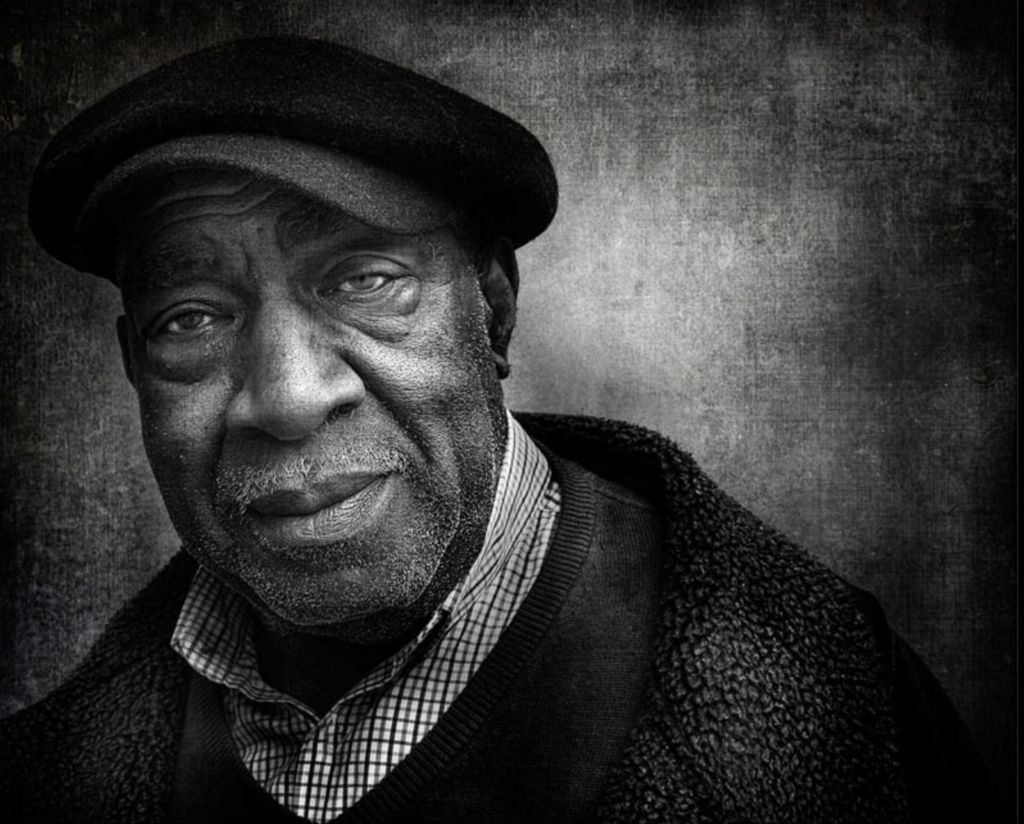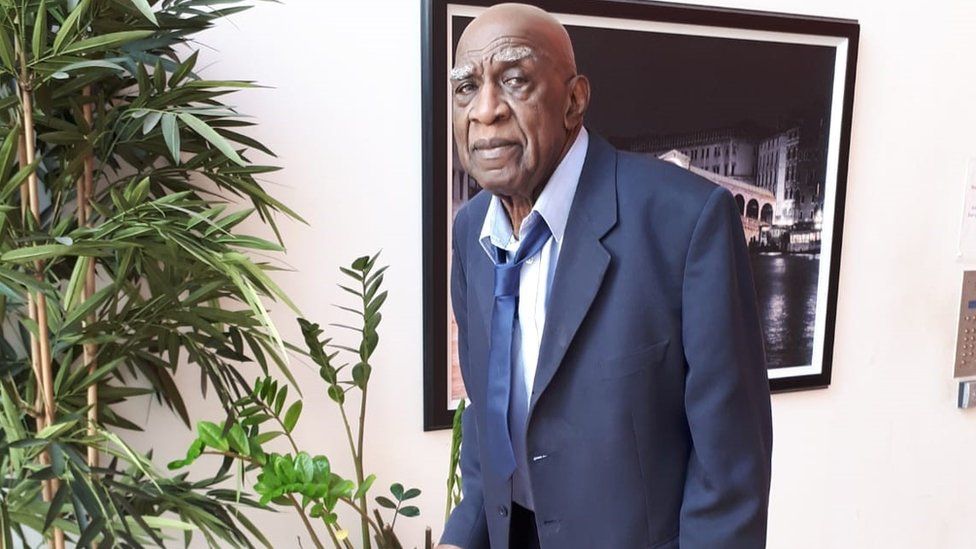Clarinetist, saxophonist and composer Pavel Smetáček died at the age of 82 on Sunday. His family informed about the death of the leader of the Traditional Jazz Studio ensemble. From 1994 to 1998 Smetáček worked as a diplomat at the Czech Embassy in Rome.
The ensemble Traditional Jazz Studio commemorated their first concert 55 years ago in November 1959 with a concert in Prague’s Music Museum in 2014. The ensemble actively promoted and developed the legacy of traditional jazz. It performed at around 5000 concerts. The Traditional Jazz Studio collaborated with Hana Hegerová, Eva Olmerová and many Czech and foreign musicians. Pavel Smetáček has received many awards, including the Czech Jazz Federation Annual Prize for 1967. Pavel Smetáček was the son of the renowned conductor and musician Václav Smetáček, who directed the Prague Symphony Orchestra for more than 30 years.

At the back of his influential book The Advancing Guitarist: Applying Guitar Concepts & Techniques, in an appendix called “Selected Short Subjects,” Mick Goodrick leads off with a pithy comment on competition: “If compete you must, try to keep it to yourself.”
This is not, one might say, the prevailing attitude among guitar slingers. But if the instrument can invite a tendency toward chest-thumping, and the general sense that more is more, Goodrick embodied the polar opposite. He was elliptical, understated, not one for the spotlight. He recorded infrequently as a leader. Yet he was, in every way that mattered, a guitar hero. Following his death on Nov. 16 at 77, due to Parkinson’s disease, tributes poured in from players whose lives he touched and whose careers he helped launch, including Pat Metheny, his successor in the Gary Burton Quartet.
“I met Mick in the summer of 1973,” Metheny writes on Facebook, recalling their time teaching at a summer jazz camp in Normal, IL. “Mick and I wound up as roommates for the week. We found an instant friendship and musical bond. We played duets that first night that remain among my fondest musical memories.” The two became colleagues on the guitar faculty at Berklee College of Music, and for a spell they were co-guitarists in what was briefly the Gary Burton Quintet, before the baton was passed. If Goodrick felt any pangs or pressures of competition, he kept them to himself.
For all his reticence, Goodrick was also capable of searing and emotive solo flights — for example, his features on “Vox Humana,” a Carla Bley composition from Gary Burton’s 1976 album Dreams So Real, or “Unfinished Sympathy,” a Michael Gibbs piece from Burton’s Ring two years prior. Goodrick’s own 1979 quartet set In Pas(s)ing, surprisingly his only entry in the ECM catalogue, includes the bouncy “Summer Band Camp” (perhaps inspired by those get-to-know-you duets with Metheny back in ’73). His fluid single-note lines and subtle accompaniment under saxophonist John Surman and bassist Eddie Gomez capture the essence of his artistry.
Behind the scenes, Goodrick taught generations of players at Berklee and the New England Conservatory. He impacted many more through The Advancing Guitarist and the three-volume sequel, Mr. Goodchord’s Almanac of Guitar Voice-Leading for the Year 2001 and Beyond. The depth of his influence was evident in Brooklyn this past March, when Joel Harrison’s Alt Guitar Summit spearheaded a celebration of Goodrick’s legacy, featuring Ben Monder, Wolfgang Muthspiel, Julian Lage, Kate Schutt and more.
As word of his passing spread this week, the social feeds of other leading jazz guitarists filled with tributes. Lage Lund: “A day doesn’t go by where I’m not using or teaching some of the ideas he gave me all those years ago.” Lionel Loueke: “I’ve learned so much from him.” Miles Okazaki, on The Advancing Guitarist: “This masterpiece came out when I was a teenager and opened up a whole world of possibilities.”
Nir Felder writes: “I was by turns in awe, inspired, scared and puzzled by him.” Perhaps the scary and puzzling part was Goodrick’s dogged insistence on his students’ own agency. “This is a do-it-yourself book,” he declared in The Advancing Guitarist. “It’s not a method book. You supply the method; you do it yourself.” That said, there’s perhaps a bit more method than Goodrick lets on, and plenty of complex theory. (Quartal harmony on the melodic minor scale? Voicings from the symmetrical diminished scale? The book’s got you covered.)
But nowhere else will a guitar student encounter “the science of the unitar,” as Goodrick put it. “In most guitar method books,” he wrote, “no mention is ever made of playing up and down one string. This omission is a huge oversight, because playing on a single string is absolutely the most logical place to begin on a guitar.” This is the foundation of the book’s first section, “The Approach.” It’s about rethinking, reprioritizing, liberating oneself from habits, thinking like a beginner. Then comes the headier dose of theory in section two, “Materials.”
The third and final section, “Commentaries,” is arguably the deepest, where Goodrick reveals himself to be equal parts Yoda and Oscar Wilde. “If even one person listens to you, your playing is drastically altered.” “Listen to the music you play. It will tell you things.” “Don’t be afraid to look at the musicians that you are playing with. Don’t be afraid to look at the people you’re playing to. And even if you are afraid, look anyhow. You’ll learn much.”
Goodrick played like a musician with nothing to prove and everything to share. He proffered insights on self-criticism and feeling stale that pertain not only to music but to nearly any human endeavor. He thought deeply about pedagogy and the nature of learning, and the conceptual soundness of his approach is evident in its democratic spirit.
“Everyone may not have the ability to become a great guitarist,” he wrote, “but everyone does have the ability to improve, to get better. To me, that’s more important.”
A previous version of this post misidentified the saxophonist on Mick Goodrick’s In Pas(s)ing. It is John Surman, not Jan Garbarek.

Jazz singer Victor Evans has died at the age of 88.
Evans, from Edgbaston, Birmingham, performed with the late Jamaican-born British Jazz saxophonist Andy Hamilton and The Blue Notes. He also performed weekly at the Silvershine Jazz Club at the Corks Club in Bearwood, Smethwick.
Blue Notes guitarist Paul Foad said he had continued to sing with them until the summer, despite being ill, making him “the greatest jazz warrior I know”. “There really was nobody who could touch him as a jazz vocalist, he could tell a story by singing,” he said. Mr Foad said he also was a mentor to the younger musicians, in particular teaching them how to play slow ballads. “He was the master of that,” he said. Silvershine Jazz Club dedicated a gig to the “fabulous singer” following his death on 3 November.

The musician was born in Kingston, Jamaica, and moved to the UK at the age of 21 in 1964. His daughter, Dionne Thompson, said his passion for music prevailed even when he was diagnosed with Alzheimer’s in 2012 and he continued to sing at the jazz club in the months leading up to his death. She told the BBC: “He was all about jazz, even with Alzheimer’s he still remembered how to play and sing.” What a Wonderful World by Louis Armstrong and Without a Song by Bill Evans were Mr Evans’ favourite songs to perform.
“We have great memories of the many gigs we did together and the stories he told us of his life that sometimes had us doubled up with laughter,” the Silvershine Jazz Club said on Facebook. “We’re going to miss you buddy.”







More Stories
CD review: George Benson – Dreams Do Come True: When George Benson Meets Robert Farnon – 2024: Video, CD cover
The band was tight as ever. The Warren Haynes Band cuts loose: Video, Photos
Interview with Alvin Queen: Feeling Good – I heard these tunes played by … Video, new CD cover, Photos